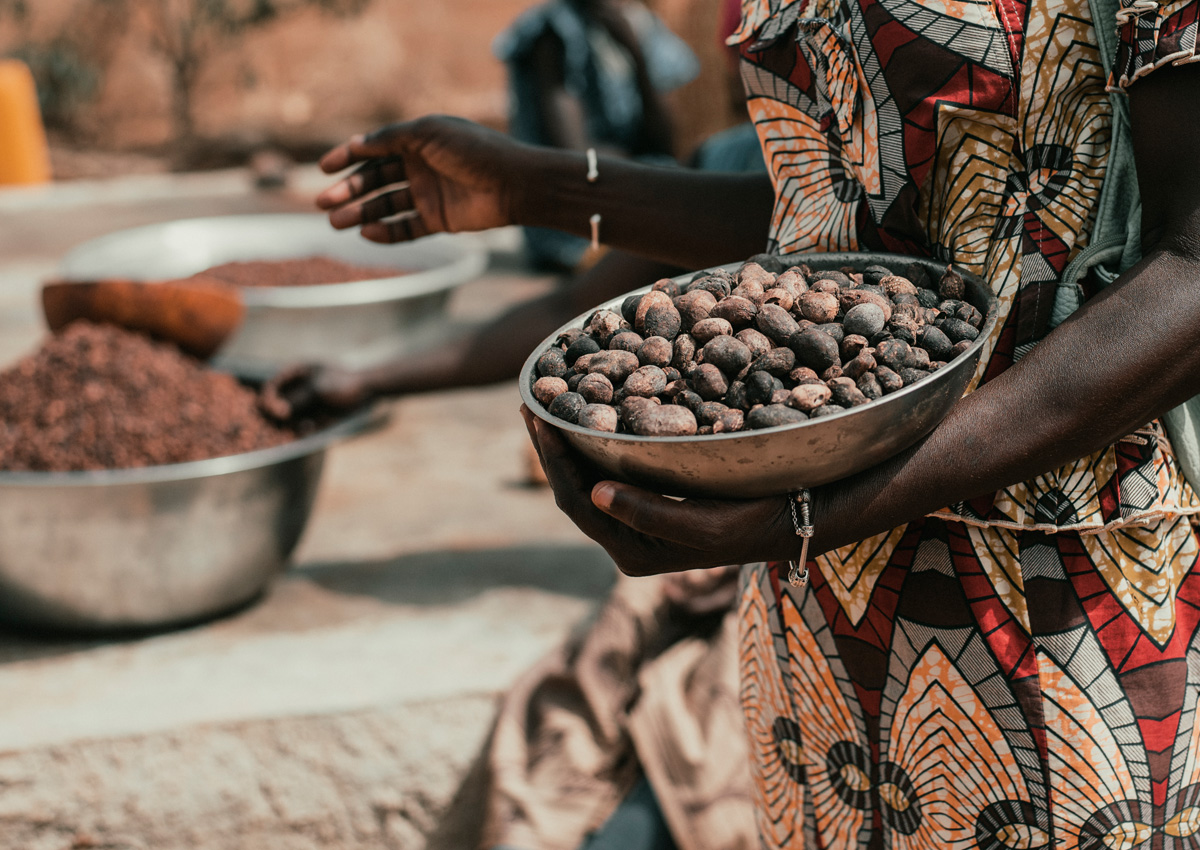
Researchers Sequence Shea Tree Genome to Support Breeding, Conservation Efforts
September 15, 2021| |
An international team of researchers led by the University of New Hampshire (UNH) has sequenced the genome of the shea tree, providing a valuable resource for the strategic development of the species and contributing to its preservation.
The tree is known for the popular product shea butter, a multimillion-dollar ingredient used in cosmetics, personal care products, pharmaceuticals, and chocolate. For hundreds of thousands of African families living in the "shea belt" it is also a crucial source of nutrition and income. Despite increasing demand for shea butter, the slow-growing shea tree is being threatened by other cash crops, and its preservation most likely lies in its genetic improvement.
The researchers assembled a chromosome-scale reference genome for the shea tree. Like the human genome, the shea tree genome contains genes for traits helping researchers to determine tree characteristics. Genome annotation led to the identification of 38,505 coding genes. Further comparative sequencing with a diverse collection of trees revealed nearly 3.5 million natural genetic variations, known as single nucleotide polymorphisms (SNPs), that can be used to distinguish trees and begin to understand the genetics underlying important attributes.
For more details, read the news article in UNH Today.
| |
You might also like:
- Resistance Genes for Deadly Ash Tree Disease Discovered
- Tea Tree Genome Reveals Insights on Its Flavor, Evolution of Caffeine Biosynthesis
- Pocket K No. 50: Biotech/GM Trees
Biotech Updates is a weekly newsletter of ISAAA, a not-for-profit organization. It is distributed for free to over 22,000 subscribers worldwide to inform them about the key developments in biosciences, especially in biotechnology. Your support will help us in our mission to feed the world with knowledge. You can help by donating as little as $10.
-
See more articles:
-
News from Around the World
- Researchers Sequence Shea Tree Genome to Support Breeding, Conservation Efforts
- Asian Regional Workshop on Current and Upcoming Items under the CBD and its Protocols
- Genetically Engineered Soybeans Produce Cow-less Cheese
- Label Information Increases Purchase Appeal of GM Foods -Study
- Study Shows Filipino Biotech and Organic Farmers Open to Co-Existence
- Filipino Scientist Identifies Gene to Help Rice Plants Survive Drought
-
Research Highlights
- Researchers Develop Astaxanthin-rich Maize
-
Plant
- Scientists Use CRISPR to Target Disease Spread from Mosquitoes
- BLB-resistant Vietnamese Rice Developed Using CRISPR-Cas9
- Researchers to Use Gene-editing Technology to Incite Crop Regeneration
- MIT Experts Find Programmable Gene Editing Proteins outside of CRISPR Systems
- Nigeria Moots for a Multidisciplinary Approach to Genome Editing
-
Read the latest: - Biotech Updates (January 21, 2026)
- Gene Editing Supplement (January 28, 2026)
- Gene Drive Supplement (February 22, 2023)
-
Subscribe to BU: - Share
- Tweet

